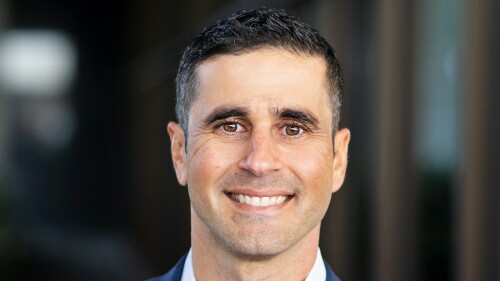While many real estate investors and lenders seem to be holding their breath in anticipation of the next recession, there are nonetheless some promising new opportunities on the horizon. That was the collective opinion of four lenders who served as panelists on “The Evolving Landscape of Capital Markets,” a discussion that was part of the recent 2019 ULI Carolinas Meeting in Raleigh.
“What strikes me as odd is that there’s a lot of capital on the sidelines right now,” said Bobby Werhane, an assistant vice president with Bellwether Enterprise in Charlotte. Werhane acknowledged that there seems to be no shortage of capital out there, at least in terms of equity deals, but investors are cautious about relinquishing it. “People are trying to find smart deals; they have PTSD from 2007.”
Indeed, everyone is trying to predict when the next slowdown will happen. “Most forecasts have agreed that 2019 will be pretty good; but 2020 and 2021 they’re viewing with some caution,” said Stewart Patch, a senior vice president at Pinnacle Financial Partners in Raleigh. “There’s a lot of competition. It’s crazy how hard it is to achieve deals.”
The only thing that developers can do is continue to maintain strict discipline with their numbers, he added. After all, it is entirely likely that many of the deals currently being negotiated will see a recession.
In terms of asset classes, hospitality may well be the most exposed in the event of a recession, given that it requires a nightly lease, said Patch. With all the disruption occurring in the retail sector, those projects can be tricky, too, unless they are anchored by a well-known grocery store. And the landscape for office development is also shifting, with the popularity of coworking spaces and their lack of hard-and-fast leases making some lenders nervous—whether or not WeWork and its ilk are the wave of the future, as some prognosticators contend.
By and large, the multifamily market seems to be holding up, though currently there is a good supply in the Carolinas’ major markets: Charlotte, Research Triangle, and Charleston. “I think developers will be fine, and given demographic growth, units will be fine,” said Patch. “But they may not be able to drive rents they way they’re underwriting.”
Brad Smith, a senior vice president at Bank of America Merrill Lynch and the panel’s moderator, pointed out that the industrial sector also is thriving. “I think there’s a lot of growth [there], especially last-mile industrial,” he said.
More generally, the region’s players have shifted, said Lee Roberts, a managing partner with SharpVue Capital in Raleigh. “Here in the Carolinas, there’s been an increasing influx of people from outside the region”—places like Atlanta and D.C.—“who are getting priced out of gateway markets,” he explained. The cost of doing business in this region seems low to them, but as a result, locals are becoming priced out and are beginning to pull back.
A discussion about the state of real estate lending and investing in 2019 would be incomplete without tackling the elephant in the room: the new Opportunity Zone program that was part of the 2017 tax overhaul bill backed by President Trump. With its tax incentives for those who make qualified investments in specific low-income neighborhoods, the program could have a major impact in communities sorely lacking in investment and access to capital.
“I believe it’s quite possibly the next best thing since sliced bread,” said Werhane, pointing out that the legislation was developed by politicians from both sides of the aisle. “Over the longer term, it’s a benefit for groups that traditionally haven’t had access to private wealth. But it’s complex, and you’ll need great accounting and legal help.”
The program is not without controversy, however. Will it increase the rate of gentrification for many neighborhoods? Some studies show that only a small percentage of markets in danger of being gentrified are Opportunity Zones. “Others truly need this type of impact capital,” said Werhane.
But it is unclear if the initiative’s impacts will reach some of the smaller, rural communities that are so common throughout the Carolinas. In many cases, said Smith, current Opportunity Zone deals are simply ongoing, shovel-ready projects that were repositioned to fit into the program’s profile. This means that for now, the program probably will not benefit the area’s smaller towns, although its minor cities might see some capital.
But it’s going to evolve, said Werhane. “The market will normalize over time. Every time I open the news, I read about a new [Opportunity] fund. Only two months from now, I bet it’ll be commodified, priced more like a mutual fund, with more capital available than projects.”
And because the program runs on a different cycle than many other real estate deals, with at least a 10-year investment horizon, it might be able to weather a recession or slowdown and still provide significant benefits.
Which is a useful option to keep in mind. After all, these are uncertain times. “Think about how long we’ve been in this expansion,” Smith pointed out. “Over the next three years, we’re all going to be waiting for that shoe to drop.”




